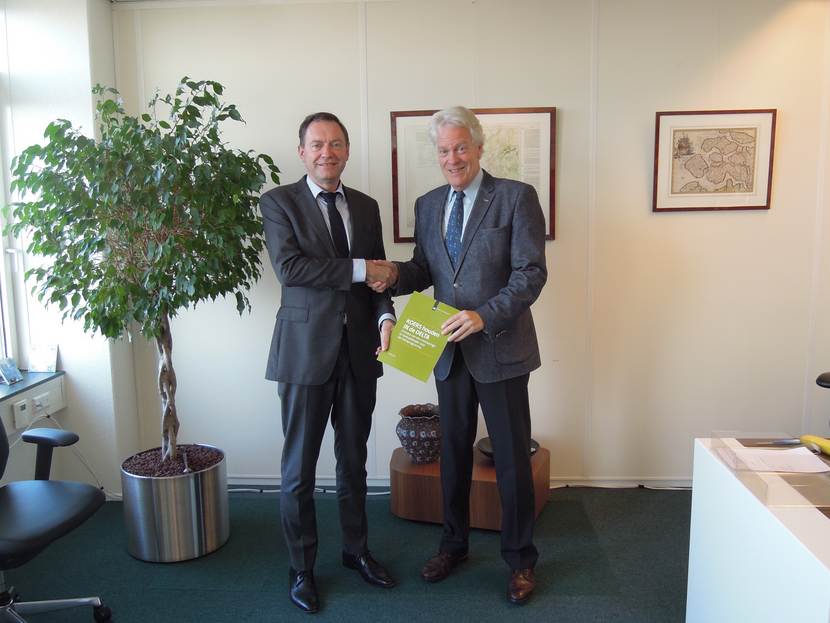Delta Programme Commissioner receives final report on Delta study
Organise the learning capacity of the Delta Programme, anchor the adaptive approach, and create a basis for joint accountability. These are some of the recommendations set out by the Netherlands Environmental Assessment Agency (PBL) in its report Koers houden in de Delta [Staying on Track in the Delta]. The PBL, the University of Amsterdam, and Delft University of Technology have mapped out the design requirements for a monitoring and evaluation framework for the Delta Programme.

Being able to closely monitor the progress made with the Delta Programme, keeping up the impetus in the joint transition process, and ensuring a solid foundation for external accountability – that is what it is about. Hans Mommaas (Managing Director of the PBL) presented the final report on this study to Delta Programme Commissioner Wim Kuijken on 31 October 2016.
The Delta Programme is aimed at protecting the Netherlands against flooding, ensuring a sufficient supply of fresh water, and climate-proofing the spatial design of the Netherlands. The programme has opted for an integrated, adaptive, and participative approach to achieve its goals. The object of the PBL study was to find a monitoring and evaluation framework that ties in with this approach.
Organising a learning community
The researchers emphasise the importance of a joint approach to monitoring and evaluation in order to ensure that parties jointly learn from their experience during the implementation of the programme, while at the same time enabling them mutually to account for their efforts.
To further this, the PBL recommends that a “learning community” (Community of Practice, CoP) be developed for the implementation, monitoring, and evaluation phases, and that knowledge brokers be designated within this community who will be responsible for the exchange of knowledge and experience between the parties involved.
Anchoring adaptive delta management
In addition, the researchers recommend that the monitoring be focused both on developments within the programme and on developments in the world beyond (such as the pace and impact of climate change, societal developments, and new knowledge and technologies). This is needed in order to be able to timely anticipate developments within or beyond the Delta Programme, i.e., the so-called adaptive delta management.
A signal group could be established to periodically map out changes beyond the Delta Programme and analyse their impact on the implementation of the Delta Programme.
Creating a basis for joint accountability
The Delta Programme 2015 outlines the Delta Decisions, preferential strategies, and Delta Plans. The Delta Programme has subsequently entered the elaboration and implementation phase. The researchers emphasise the added value of setting down concrete guidelines for the actual monitoring of the progress made with respect to the implementation. For example, the collaborating parties will need to set more concrete goals. In addition, they advocate setting down baselines within the domains of flood risk management, freshwater supply, and spatial adaptation.